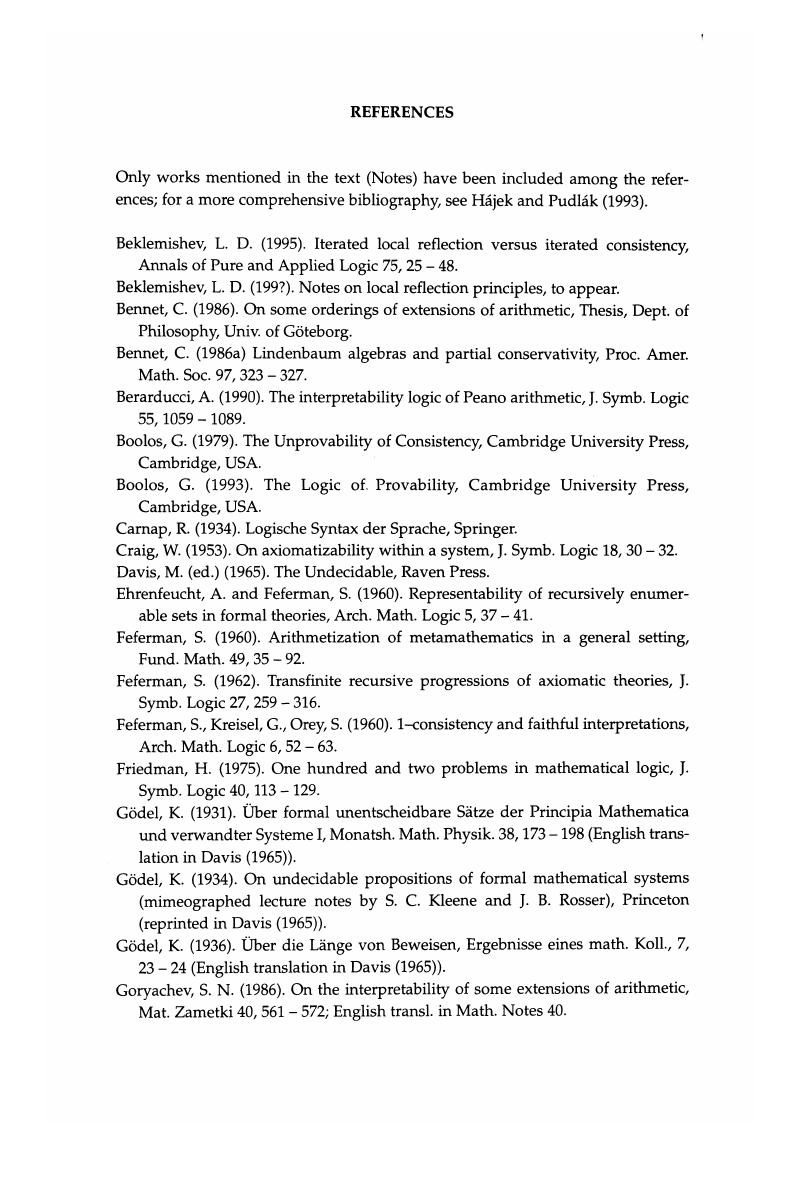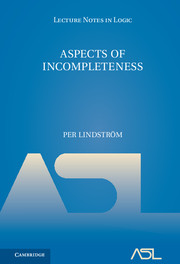Book contents
- Frontmatter
- Dedication
- Preface
- Contents
- CHAPTER 0 Introduction
- CHAPTER 1 Preliminaries
- CHAPTER 2 Incompleteness
- CHAPTER 3 Numerations of r.e. sets
- CHAPTER 4 Axiomatizations
- CHAPTER 5 Partial conservativity
- CHAPTER 6 Interpretability
- CHAPTER 7 Degrees of interpretabilty
- CHAPTER 8 Generalizations
- References
- Index
- Notation
- References
References
Published online by Cambridge University Press: 24 March 2017
- Frontmatter
- Dedication
- Preface
- Contents
- CHAPTER 0 Introduction
- CHAPTER 1 Preliminaries
- CHAPTER 2 Incompleteness
- CHAPTER 3 Numerations of r.e. sets
- CHAPTER 4 Axiomatizations
- CHAPTER 5 Partial conservativity
- CHAPTER 6 Interpretability
- CHAPTER 7 Degrees of interpretabilty
- CHAPTER 8 Generalizations
- References
- Index
- Notation
- References
Summary

- Type
- Chapter
- Information
- Aspects of Incompleteness , pp. 125 - 129Publisher: Cambridge University PressPrint publication year: 2017



